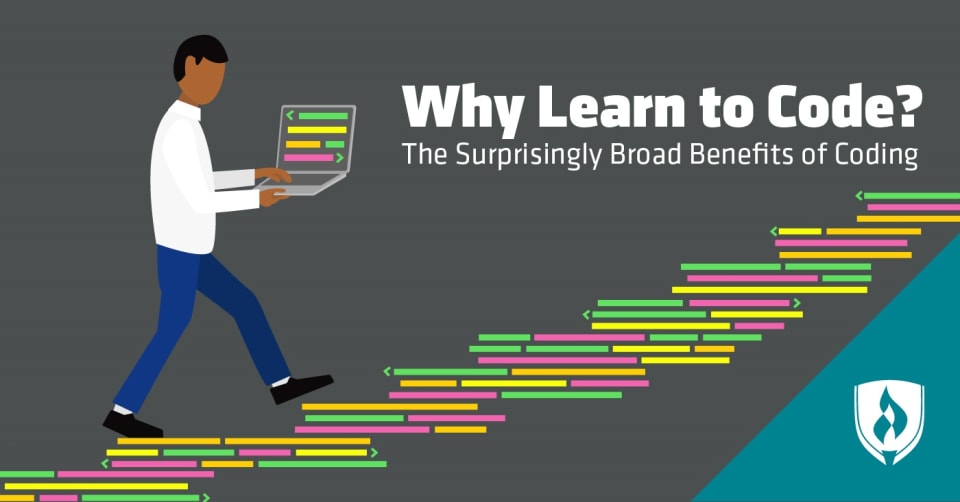Decoding the Decision: A Comprehensive Exploration of Whether You Should Learn to Code

Introduction:
In the digital age, where technology intertwines with every facet of our lives, the question of whether one should learn to code has become increasingly relevant. Coding, once confined to the realms of computer science, has now become a valuable skill transcending industries and professions. In this extensive exploration, we navigate the landscape of coding education, weighing the benefits, challenges, and broader implications of acquiring this powerful skill.
- The Ubiquity of Technology: A Compelling Motivation
In an era where technology is omnipresent, learning to code opens doors to a world of opportunities. From mobile applications to websites, software systems, and even embedded technologies in everyday devices, the ability to understand and manipulate code provides a deeper comprehension of the digital infrastructure that shapes our modern existence.
As technology continues to advance, the demand for individuals with coding proficiency is on the rise across various sectors. Whether you aspire to be a software developer, data scientist, digital marketer, or entrepreneur, a foundational understanding of coding empowers you to engage with and contribute to the technological landscape.
- Problem-Solving and Logical Thinking: Cognitive Benefits
Coding is more than a vocational skill; it is a mental exercise that cultivates problem-solving abilities and logical thinking. Writing code requires breaking down complex problems into manageable components, designing algorithms, and anticipating potential issues—a process that sharpens analytical skills applicable across diverse domains.
The practice of coding fosters a mindset that thrives on iterative problem-solving, resilience in the face of challenges, and the ability to think critically. These cognitive benefits extend beyond coding tasks, enhancing one’s overall approach to analytical thinking and strategic decision-making.
- Creativity Unleashed: The Artistry of Code
Coding is not just about numbers, syntax, and logical structures; it is a creative endeavor that allows individuals to express themselves through technology. Writing code is akin to crafting a piece of art or composing music, where programmers bring ideas to life through lines of code.
From designing visually appealing websites to developing innovative applications, coding provides a canvas for creative expression. This artistic dimension appeals to individuals with a passion for problem-solving, innovation, and the desire to create something meaningful in the digital landscape.
- Entrepreneurial Empowerment: Building Your Vision
For aspiring entrepreneurs, the ability to code is a powerful asset. Learning to code grants you the autonomy to bring your ideas to life without being dependent on external technical expertise. Whether you’re launching a startup, building a website for your business, or creating a prototype for a new product, coding skills give you the hands-on capability to manifest your entrepreneurial vision.
Moreover, in the startup ecosystem, where agility and rapid prototyping are crucial, founders with coding skills can iterate on their products more efficiently, respond to market feedback in real-time, and navigate the dynamic landscape of entrepreneurship with a technical edge.
- Global Community and Collaboration: A Connected World
Coding is not a solitary endeavor; it thrives on collaboration and a global community of developers who share knowledge, contribute to open-source projects, and collectively advance the field. Learning to code opens the door to this vibrant community, providing opportunities for networking, mentorship, and collaboration on projects with like-minded individuals around the world.
Platforms like GitHub, Stack Overflow, and coding bootcamps facilitate a collaborative learning environment where beginners and experienced developers alike come together to exchange ideas, seek help, and contribute to the collective knowledge pool. The sense of community fosters a supportive learning environment and provides access to a wealth of resources.
- The Learning Journey: Navigating Challenges
While the benefits of learning to code are abundant, the journey is not without its challenges. Learning a new skill, especially one as intricate as coding, requires dedication, persistence, and a willingness to embrace the iterative nature of the learning process.
Understanding programming concepts, mastering syntax, and troubleshooting errors can be initially daunting, but overcoming these challenges fosters resilience and a growth mindset. The learning journey often involves a combination of self-study, online courses, coding bootcamps, and real-world projects to solidify understanding.
- Choosing the Right Path: Tailoring Coding Education
The approach to learning to code is diverse, with various educational paths available to suit individual preferences, goals, and time commitments. Traditional computer science degrees offer in-depth theoretical knowledge, while coding bootcamps provide intensive, practical training for quick entry into the workforce.




